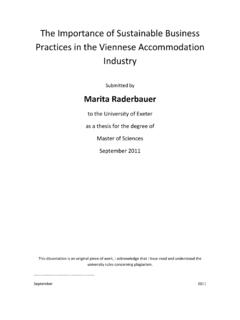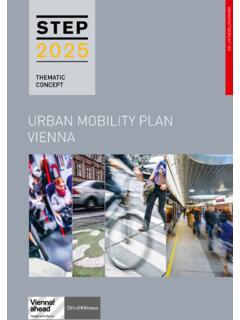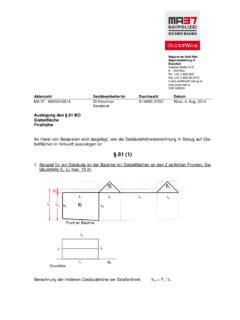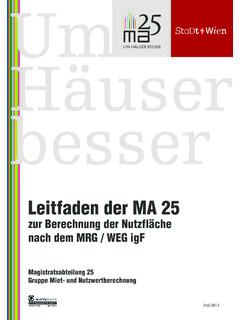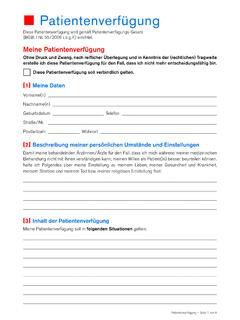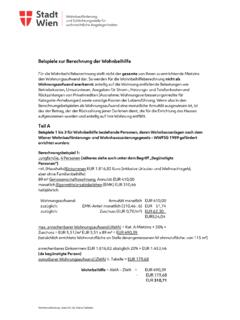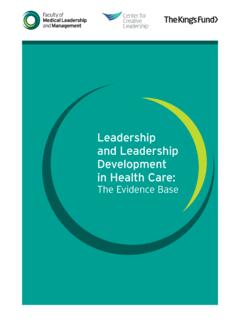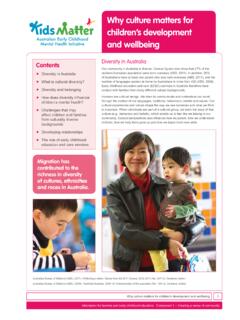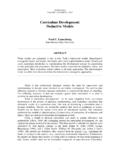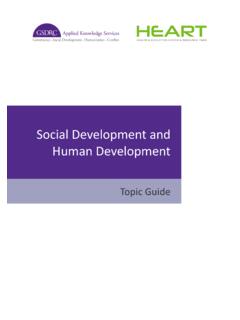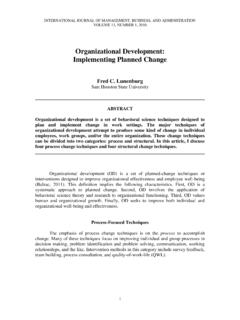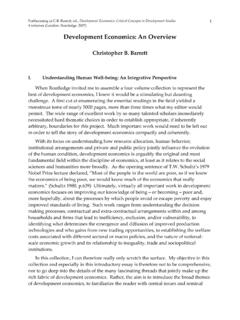Transcription of THE IMPACTS OF CULTURE ON THE ECONOMIC …
1 European Institute for Comparative Urban Research Erasmus University Rotterdam THE IMPACTS OF CULTURE ON THE ECONOMIC development OF CITIES Jan van der Borg Antonio Paolo Russo The IMPACTS of CULTURE on the ECONOMIC development of Cities A research into the cultural economies and policies of Amsterdam, Bolzano, Edinburgh, Eindhoven, Klaipeda, Manchester, Rotterdam, Tampere, The Hague and Vienna DRAFT September 2005 J. VAN DER BORG RUSSO Assisted by: M. Lavanga G. Mingardo European Institute for Comparative Urban Research (EURICUR) Erasmus University Rotterdam TABLE OF CONTENTS PREFACE 1 EXECUTIVE SUMMARY 3 1. INTRODUCTION 7 Research background 7 Objectives of this project and research questions 9 Working definitions 10 Research methodology and project output 13 2.
2 CULTURE AND CITY: THE RESEARCH CONTEXT 16 The urban life-cycle and the knowledge economy 16 CULTURE and urban development 19 3. A MODEL OF CULTURE -ORIENTED ECONOMIC development (COED) FOR THE CITY 22 The urban cultural cluster 23 Evolution of the cluster 23 The ECONOMIC IMPACTS of CULTURE 26 The cultural cluster and the socio-environmental fabric of the city 29 Integrating three impact areas in one model framework 31 4. COMPARATIVE ANALYSIS OF TEN CASE STUDIES 35 Main city characteristics and European positioning 35 Cultural highlights 37 Size of cultural sector 43 Spatial organisation and structure of the cultural sector 47 Integration with the urban economy 53 Sustainable development of the cluster 60 5. POLICY RECOMMENDATIONS AND FINAL REMARKS 68 Testing the viability of the COED model and benchmarking 68 Policy frameworks and recommendations 71 Final remarks 87 REFERENCES 89 ANNEX.
3 THE CASE STUDIES 1 CASE STUDY OF AMSTERDAM 95 2 CASE STUDY OF BOLZANO, ITALY 131 3 CASE STUDY OF EDINBURGH 153 4 CASE STUDY OF EINDHOVEN 193 5 CASE STUDY OF KLAIPEDA 217 6 CASE STUDY OF MANCHESTER 247 7 CASE STUDY OF ROTTERDAM 277 8 CASE STUDY OF TAMPERE 303 9 CASE STUDY OF THE HAGUE 337 10 CASE STUDY OF VIENNA 359 PREFACE The present topic has first been proposed to become a EURICUR research during a dedicated workshop of the 2001 EUROCITIES General Meeting in Barcelona, by initiative of the ECONOMIC development and Urban Renewal Committee (EDURC), at that moment chaired by the City of The Hague. It has since then slowly evolved into a full research programme with, in the tradition of EURICUR research, as many as ten partner cities that individually funded the project and served as case studies for the investigation.
4 The City of The Hague has facilitated the creation of the city network and maintained the leadership of this network during the project. Fortunately, the study of cultural issues was not new to EURICUR. A sound base of theoretical work and comparative research in related fields such as cultural tourism, CULTURE and heritage planning, ECONOMIC clusters, and the knowledge-based economy could be built upon. In reality, treating CULTURE and creativity as ECONOMIC engines for urban areas and applying EURICUR s policy-oriented research approach to a field that today has deserved a very high position on cities agendas, proved to be a tough challenge. Nevertheless, the authors hope that the timing is appreciated, not only because academic work regarding the ECONOMIC impact of CULTURE is in full development , but also because empirical work is still extremely scarce and especially this knowledge proves to be essential for urban policy.
5 The project has been organised and conducted by a EURICUR team consisting of Jan van der Borg and Antonio Russo. Mariangela Lavanga and Giuliano Mingardo have assisted in the writing of a number of case studies (respectively Amsterdam, Edinburgh, Klaipeda and Tampere, and Rotterdam, The Hague and Eindhoven). Moreover, we are grateful with the late Klaus Schussmann for having started this debate and bringing it to the attention of fellow policymakers, and to Paul Zoutendijk for building the network of partner cities that supported the project. Finally, our appreciation goes to all the city representatives that participated in this study and assisted us in the organisation of field trips and data collection, and to all the people that we have interviewed; their names are listed at the end of the single case studies.
6 2 3 EXECUTIVE SUMMARY The present report is the result of an international research by EURICUR, the European Institute for Comparative Urban Research, based at the Erasmus University Rotterdam. Ten cities have associated in this research, acting both as funding partners and case studies: Amsterdam, Bolzano, Edinburgh, Eindhoven, Klaipeda, Manchester, Rotterdam, Tampere, The Hague, Vienna. The City of Hague is the leader of the network and has been the initiator of this research project. The project focuses on the conceptualisation and analysis of the effects of CULTURE on the ECONOMIC development trajectories of European cities. It moves from the recognition that CULTURE is a key ingredient of post-industrial, information-intensive ECONOMIC activity.
7 A CULTURE -oriented ECONOMIC development is one that integrates the symbolic and creative elements into any aspect of the urban economy, pursuing distinction, innovativeness, and a higher level of interaction between localised individual and social knowledge and globalising markets. Presently, cities spend more and more in cultural programmes as well as large infrastructure projects, which are supposed to be drivers of sustainable development : urban landmarks influencing the image and the attractiveness of the city for private investments, but also platforms for the new creative class and stimuli to social integration through self-reflection and cultural inclusion. However, there is uncertainty with regard to the type and magnitude of returns expected from such projects.
8 Moreover, seed-funding creativity and cultural dynamism is a complex issue, as traditional institutions and policy approaches are hardly able to come to terms with fuzzy, anarchist social structures. This EURICUR study sets out to propose a theoretical framework to interpret and possibly steer CULTURE -oriented urban development : the COED model. From the development of a cluster of cultural activities, all types of ECONOMIC and social externalities arise, in a self-reinforcing process. Policy has to accompany this development caring that the condition that are necessary for the vitality of the cultural sector and ultimately for the endurance of this model are maintained in time: spatial balance, social mobility and access to cultural resources, but also networking and cross-fertilisation within the cluster and at its edges.
9 The comparative analysis of the ten case studies ranging in size and European positioning from full-blown European capitals to medium-sized heritage cities and cities in ECONOMIC transition confirms some of the intuitions of the COED model. In cities where a certain number of cultural clusters have emerged, the urban economy has been structurally modified towards the symbolic. Cultural clusters have become to varying extents, according to the characteristics, location and governance structures of such clusters catalysts of a wholesome creative economy, involving a higher attractiveness for tourists, skilled talents, and ultimately for knowledge- 4 intensive enterprises in search of an innovative climate and high levels of quality of life.
10 Indeed, contemporary skilled workers attach a high value to a stimulating cultural climate and communities open to the new and symbolic; these factors come to influence their mobility choices, and ultimately, the competitiveness of a city. However, CULTURE -oriented ECONOMIC development is subject to strong endogeneity, modifying continuously the original conditions that make places culturally rich and viable as creative hubs. Thus COED is potentially short-lived and may bring to irreversible changes in the urban environment: the erosion of social capital, the dispersion in space of cultural activities and the consequent decreasing of clustering effects, and ultimately the fading of local cultural identity and uniqueness . Urban policy should be careful to accompany the COED process making sure that these limits are never reached.
